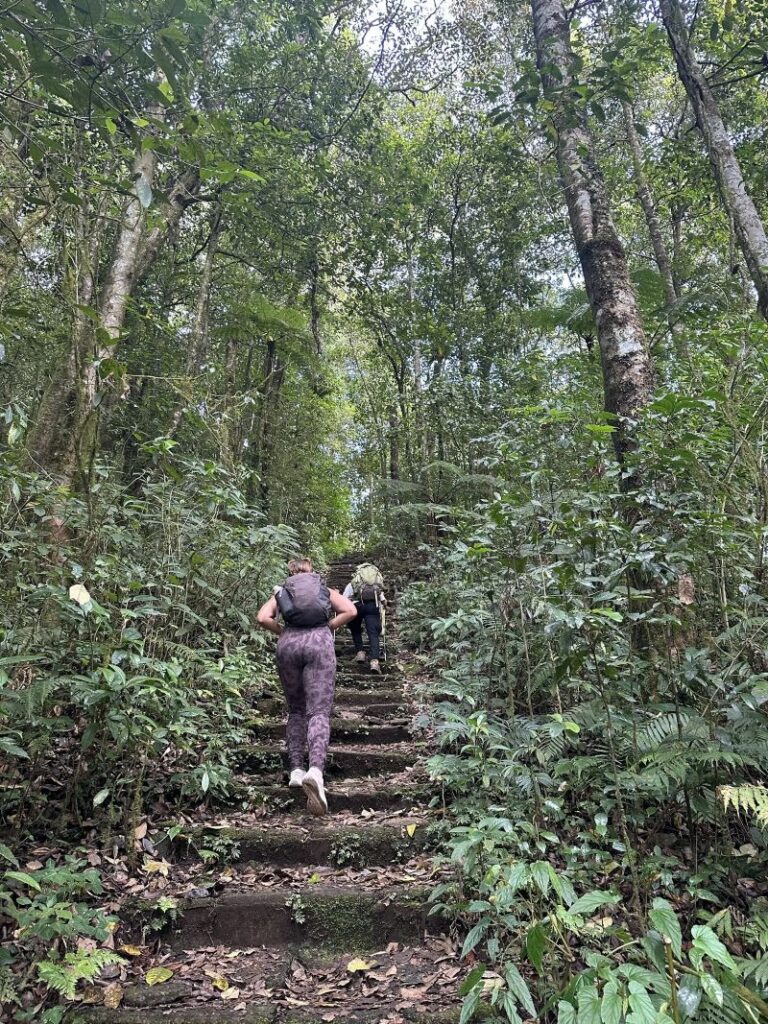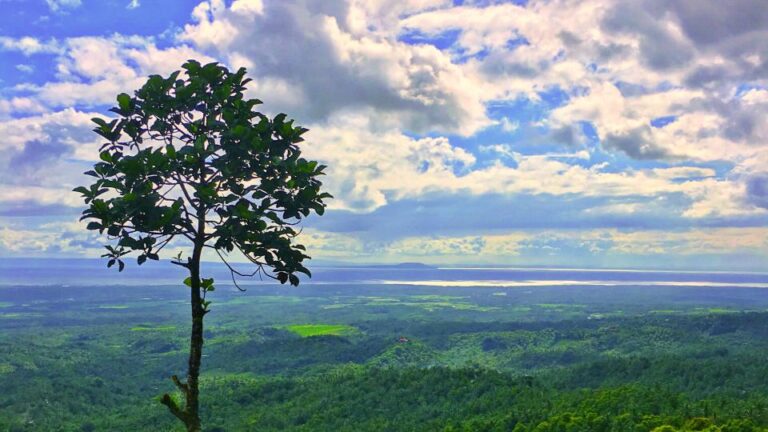The philosophy of Tri Hita Karana is the most important part of Balinese life and it governs the harmonious relationship between the people of Bali, their spiritual world, their fellow human beings, and the land itself.
When Tri Hita Karana is followed properly in the many aspects of daily rituals and life, it is thought to lead to individual prosperity in all senses of the word.
So, let’s take a look at what Tri Hita Karana means for happiness, the environment, and the well-being of the Balinese folk.
What Is Tri Hita Karana?
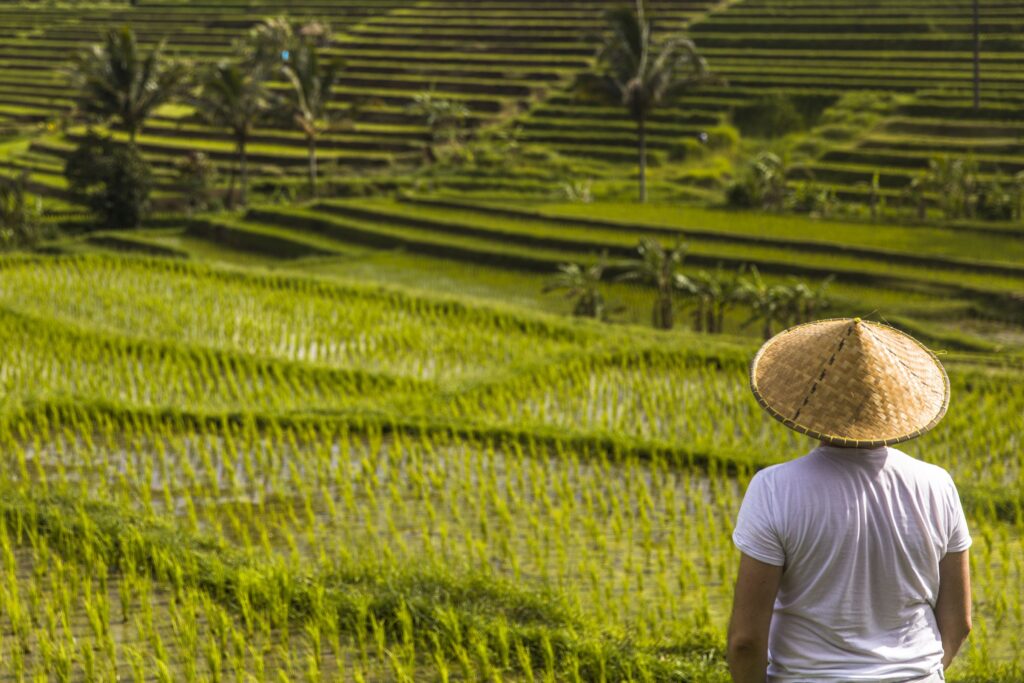
Bali, unlike most of the rest of Indonesia, is Hindu and the Balinese hold their beliefs dearly and sincerely.
The Tri Hita Karana is a sacred system that brings together three elements which are believed to be the three causes of harmonious relationships within the universe.
Let’s take a look at each of the three pillars of the Tri Hita Karana in a little more detail.
Parhyangan – The Relationship Between Man And God
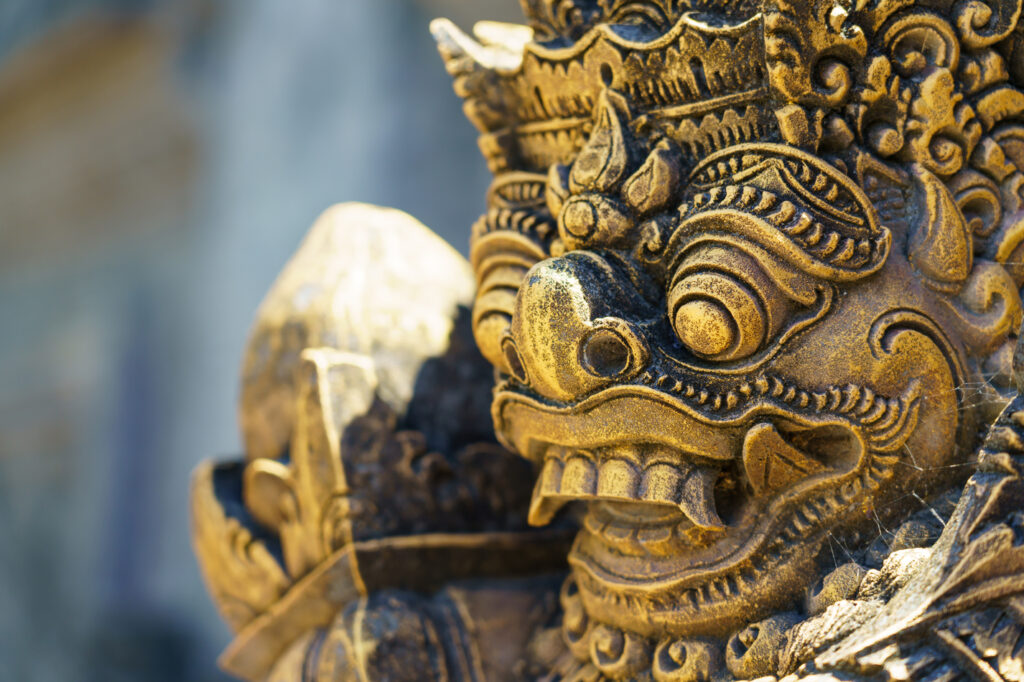
Indonesia only recognizes religions with a single god. Thus, Balinese Hindus believe that Sang Hyang Widhi Wasa is the one true god, the creator of life and the universe and that all other Hindu gods are manifestations of this god.
In order to find a happy relationship with God, the local people undertake daily rituals and regular ceremonies and offerings.
These are meant to help them appreciate the balance provided by the divine and to encourage them to find spiritual awareness.
You can find evidence of the Parhyangan wherever you look in Bali, the many aspects of the Tri Hita Karana philosophy support the culture and religion of the Balinese community.
Pawongan – The Relationship Between One Person And Their Neighbours
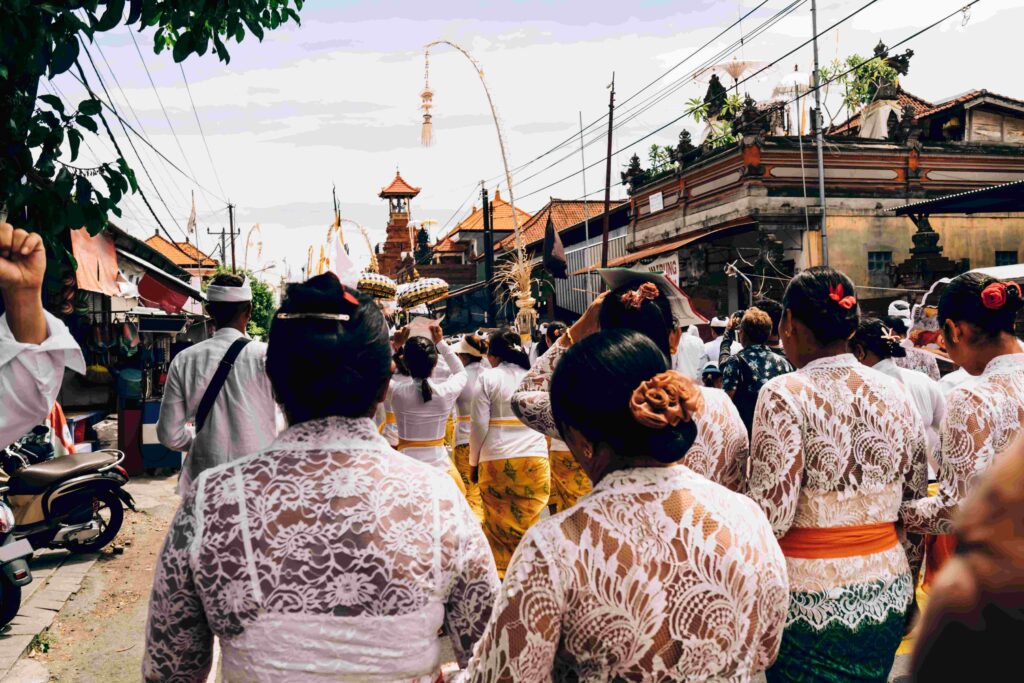
A good relationship with god is vital for happiness, but so is your relationship with your fellow humans.
Pawongan is the pillar which covers the well-being of interpersonal relationships among the Balinese.
It’s understood that Payongan means respect for others, consideration for all, and among members of the Balinese community, cooperation and mutual assistance.
“Gotong Royon” is the name for activities undertaken by the Balinese to further develop Pawongan.
Palemahan – The Relationship Between Man And Nature

Palemahan, on the other hand, looks at the relationships between humans and nature.
The Balinese believe that sustainable relationships with the environment are an essential part of life, it’s a way of repaying the blessings bestowed upon them by god.
This is the easiest of the three causes of the Tri Hita Karana to observe, you can visit the Subak natural irrigation system which is a living example of the philosophy of living in harmony with the natural environment.
A single water source is nurtured to focus on watering the rice fields throughout this paradise island. The devotion to the land has helped with maintaining a bounteous harvest throughout Bali’s history.


You can find the three causes of the Tri Hita Karana throughout Balinese life but some of the most observable moments include:
Tri Hita Karana And Rituals And Ceremonies
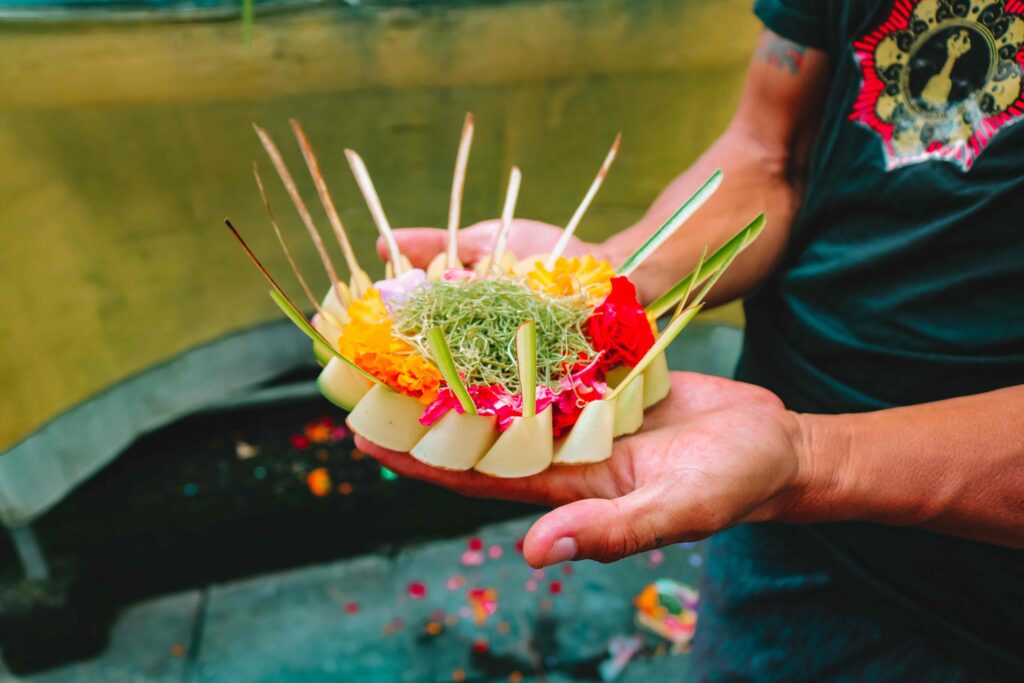
The Tri Hita Karana is found in Balinese festivals, rituals and ceremonies and the Balinese Pawukon calendar is stuffed to bursting with spiritual, communal activities that help to bring the divine, the human and nature together.
The “Odalan” are the temple ceremonies, and sacred festivals when the people offer their prayers and offerings to god to appease the aspects of god and the spirits of their ancestors.
Each offering is drawn from nature and is crafted with the philosophy of living in harmony with the land of the island in mind.
As you might expect, the festivals themselves are communal activities that bring together the Balinese people and their neighbours, family and friends to collectively acknowledge their place in the Tri Hita Karana and how their lives benefit from this harmonious ideal.
The “penjor” (the tall bamboo poles used during festivals) are a physical manifestation of the connections between our world and the spirit world.
If you spend enough time in Bali observing and participating in the festivals and ceremonies of the island, you can gain a very deep understanding of the Tri Hita Karana and how it helps to promote peace and balance in life here.
Tri Hita Karana And Modern Bali
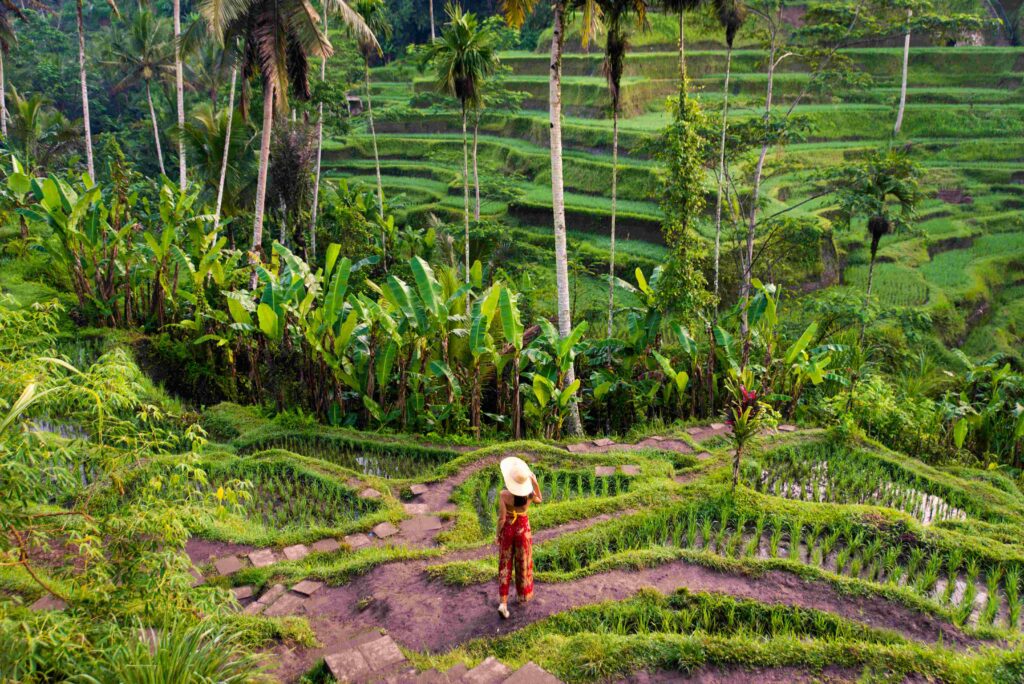
In many countries and places around the world, human development has seen the rejection of the old ways of life and an embrace of modern affectations.
Bali is not like this and Balinese society continues to maintain a firm grasp on the Tri Hita Karana ideals.
It helps, of course, that the Tri Hita Karana has a strong track record of delivering happiness and contentment in daily life and thus has a strong hold on habits and the local mindset.
You can often find designs in the local architecture which pay tribute to this philosophy and most Balinese homes are built with the Tri Hita Karana in mind. “The three causes of welfare.”
Balinese children are still taught by religious leaders, their teachers and parents of the importance of the Tri Hita Karana and how they might sustain the harmonious relationships that are their birth right in a period of change and challenge.
The Tri Hita Karana enables the Balinese to be clear about their identity and their cultural heritage and to be able to communicate what really matters when those from outside cannot see why life is where it is on the island.
Tri Hita Karana And Sustainable Development
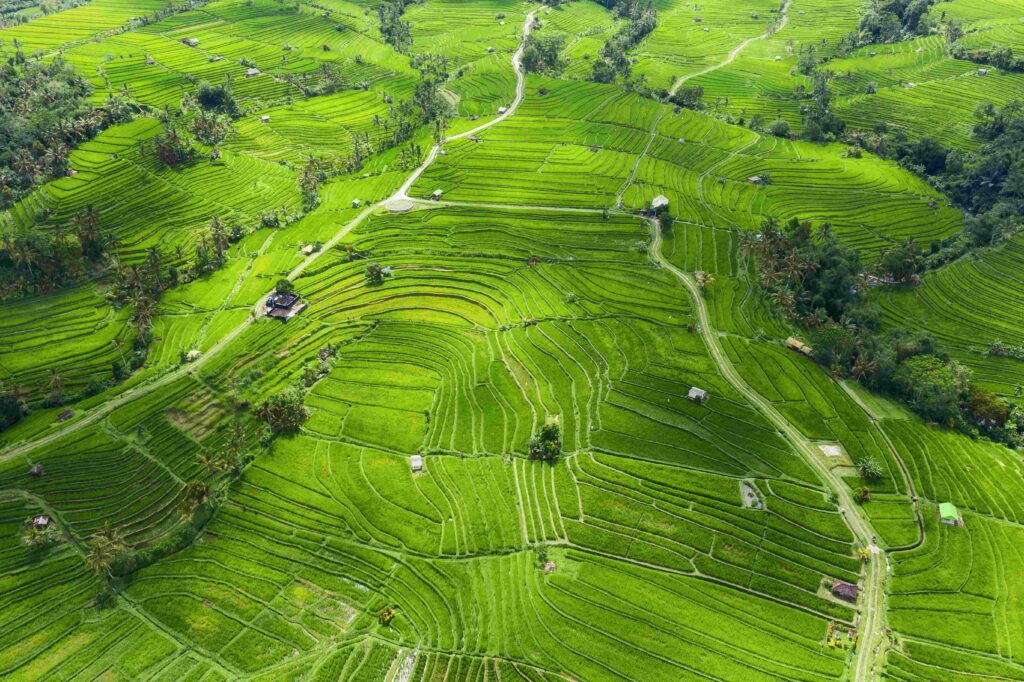
The Subak natural irrigation system is one of the first examples of sustainable development in the world and if you spend enough time in Bali, you can find many other examples of man and nature working in harmony.
That doesn’t mean that everything is perfect here and as with everywhere in the world, there are real changes facing the natural environment thanks to the pace of development but there is a strong will to bring the three causes of harmony to bear on those problems and restore the environment to its fullest.
FAQs
What Is The Meaning Of Tri Hita Karana?
The literal translation of Tri Hita Karana is “three causes of well-being” or “three reasons for prosperity”.
What Is Tri Hita Karana In Sanskrit?
Tri Hita Karana is a Sanskrit phrase. Tri is “three”. Hita, “prosperity” and Karana “cause”.
Thus, in English this is “three causes of prosperity.” To achieve this Hindus draw on the three elements or pillars of wisdom – Parahyangan, Palemahan and Pawongan (see above for a full explanation of each).
What Is The Tri Hita Karana Tourism Award?
These are awards given by a local NGO (Non-Governmental Organization) to tourism businesses that can demonstrate their participation in Tri Hita Karana and their success at creating harmony with god, nature, their environment and their fellow human beings.
A gold award from this prestigious body is the highest standard of harmony and silver and bronze awards show that the business or development has made good progress at delivering on these standards but still needs to do some work.
Affiliated businesses are further behind in their journey and need support and guidance to achieve harmony.
What Is The Subak System As A Manifestation Of The Tri Hita Karana Philosophy?
The Subak system is the world’s oldest irrigation system and it operates entirely in harmony with the local faith, the farmers who work the land and the environment they work in.
It’s the only UNESCO World Heritage Site on the island and if you want to better understand the Tri Hita Karana this is a great place to begin your study.
Final Thoughts On The Harmonious Relationship Between The Balinese And Their Fellow Humans
A people that seeks to live in harmony with god, nature, their environment and each other is one that seeks to form lasting beneficial relationships with everything around them.
The Tri Hari Katana system allows the Balinese people do just that and you can find aspects of this philosophy embedded in every part of daily life on this island.





